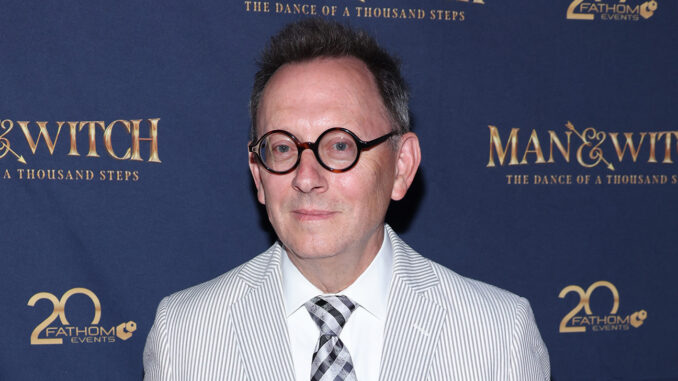
Michael Emerson in New York: A Catch-Up Chat and the Webpage That Spilled the Beans
The crisp autumn air of New York City, laced with the scent of roasting chestnuts and ambition, always feels charged with possibility. It was in this electric atmosphere that I stumbled, quite unexpectedly, into a coffee shop buzzing with quiet energy, and there, nestled in a corner booth, was Michael Emerson. Not the character Ben Linus, calculating and manipulative, from "Lost," but the actor himself, radiating a quiet intelligence that was both captivating and familiar.
His brow, instantly recognizable from countless hours of television, was furrowed in concentration as he listened intently to his companion. I couldn't quite hear the conversation, but the body language was open, engaged. This wasn't a performance, but a genuine connection. This was Michael Emerson, the man behind the enigmatic characters, simply catching up with a friend.
Later that evening, the encounter replayed in my mind. I'd always been fascinated by Emerson's ability to embody such complex roles, to breathe life into morally ambiguous characters like Linus and Finch from "Person of Interest." He wasn't just acting; he was inhabiting these roles with a depth and nuance that made them unforgettable. So, naturally, my first instinct, like any self-respecting fan in the 21st century, was to Google him.
And that's when I found it: a relatively unassuming webpage titled "An Intimate Evening with Michael Emerson: NYC Catch-Up." The site, seemingly a fan-run blog, contained a transcribed snippet of what was purportedly the conversation I'd witnessed that afternoon. It was accompanied by grainy, almost certainly taken-on-the-sly photos of Emerson in the coffee shop.
The webpage itself was a simple affair: a black background, stark white font, and a scattering of hyperlinks to other fan sites and interview transcripts. But the content… the content was pure gold. The snippet focused on Emerson's reflections on his past roles, his anxieties about upcoming projects, and his love for the city. He spoke candidly about the pressures of fame, the joys of theatre, and the importance of maintaining a sense of normalcy in a whirlwind career.
One passage, in particular, stood out: "New York," he apparently said, "is a haven. It's a place where I can be just another face in the crowd, where the expectations are different, more real. It allows me to recharge, to reconnect with the person I was before the characters took over." This resonated deeply. It humanized the actor, stripping away the layers of celebrity and revealing a man striving to find balance in a world that often demands the impossible.
However, the webpage also raised ethical questions. Was it right to eavesdrop and transcribe a private conversation, even for the sake of sharing it with other fans? The lines between public and private, especially in the age of social media, had become increasingly blurred. While the information was arguably harmless – Emerson wasn't revealing any scandalous secrets – it still felt like a violation of his privacy, a betrayal of the trust he unknowingly placed in the anonymity of a public space.
The existence of this webpage, and my own conflicting feelings about it, highlighted the paradoxical nature of celebrity. We admire actors for their talent, their dedication, their ability to transport us to other worlds. But that admiration often comes at a cost: the loss of privacy, the constant scrutiny, the pressure to live up to an idealized image.
Ultimately, the experience of seeing Michael Emerson in New York and then stumbling upon that catch-up chat online served as a potent reminder of the complexities of fandom and the importance of respecting boundaries, even when those boundaries are seemingly invisible. The webpage may have offered a fleeting glimpse into the private life of a beloved actor, but it also underscored the need to remember that behind the characters we admire, there are real people striving to live their lives with authenticity and grace, even in the spotlight. And perhaps, sometimes, the best way to appreciate them is simply to let them enjoy their coffee in peace.
